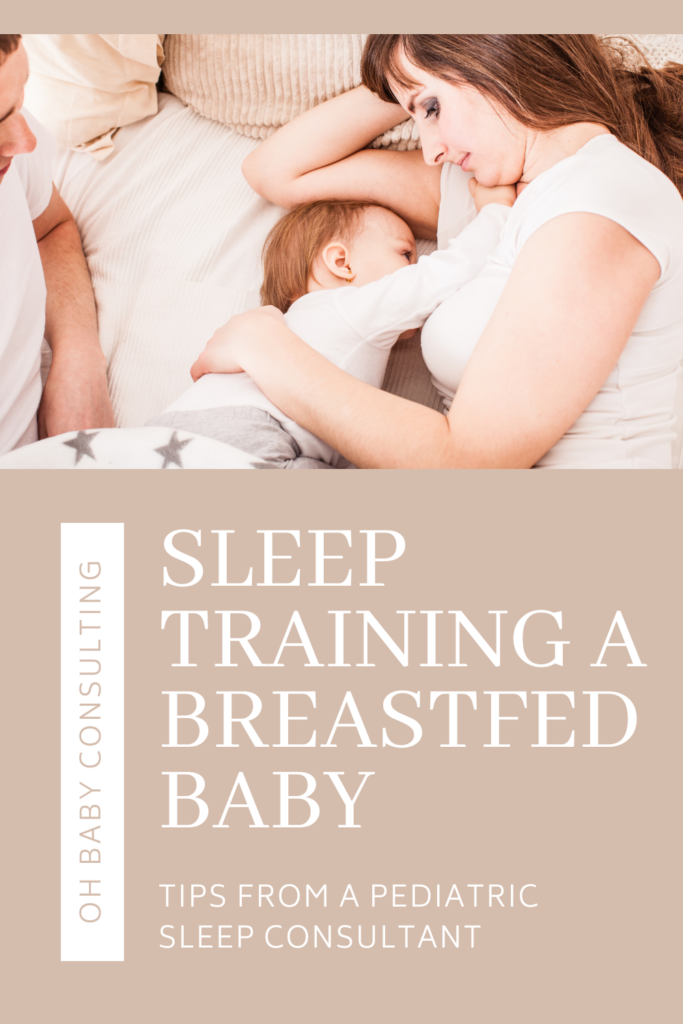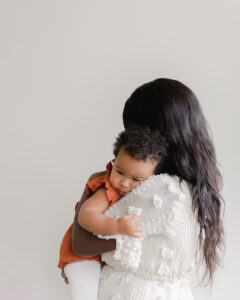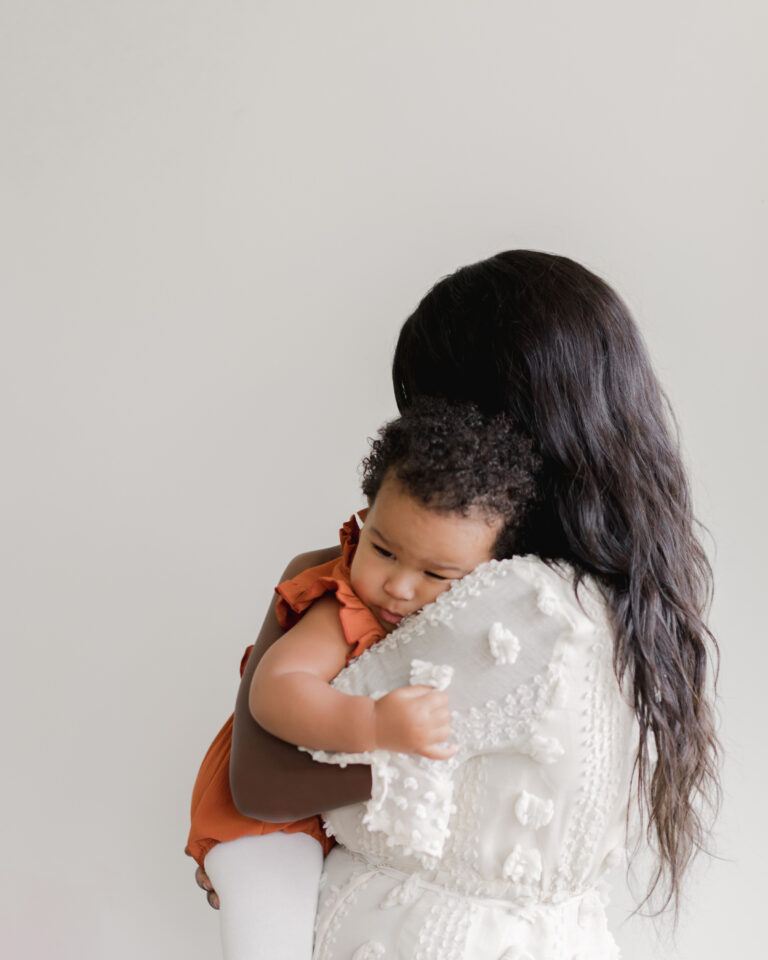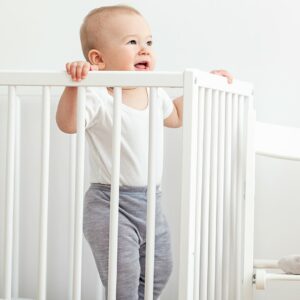One of the reasons I have dedicated my life to supporting new parents is because of the sheer amount of information available and how conflicted many experts are with one another’s points of view. Surprisingly, this is true even among medical professionals. I’ve talked to parents who have told me that their pediatrician recommend using a crib wedge (when that practice is entirely outdated and unsafe) or told them to just let their newborn cry it out; this is mind-blowing to me.
One falsehood that I’ve heard time & again is: you cannot sleep train while breastfeeding.
But guess what?
You CAN maintain your breastfeeding relationship AND get a full night of sleep!
The two are absolutely not mutually exclusive.
HOW you feed your baby doesn’t really matter
There are a few things you should know about sleep + feeding:
1. No one sleeps through the night. You might think you do or that you did before you had kids, but everyone wakes up several times throughout the night. A full night of sleep is made up of several different sleep cycles strung together. Each sleep cycle is comprised of periods of light & deep sleep, and between each one, there is a brief, partial wake up. As adults, we typically don’t remember these little arousals, but we experience them nonetheless.
Babies’ sleep cycles are slightly shorter than adult ones so they experience these partial arousals more often in the night. Babies who “sleep through the night” are still waking partially, but they are able to transition into their next sleep cycle without assistance from a parent. So when we talk about a baby sleeping through the night, what we’re really saying is that they’re able to get (back) to sleep on their own.
So it doesn’t matter if baby’s breastfed, formula fed, or eating Chick-Fil-A twice a day, they’re going to wake up at night, several times, for the rest of their lives, just like everyone else.
2. During the day, newborns can usually go about 2-3 hours between feeds if they’re breastfeeding. If they’re getting formula, that number may be closer to 3-3.5 hours. So it’s not like formula is some kind of magical elixir that’s going to keep your child full and satiated for 11 to 12 hours overnight. Their stomachs are small and they’re going to digest liquid food quickly, whether it comes from a bottle or a boob.
Once newborns are back up to birth weight, they are often able to sleep longer stretches between feeds – especially if you are conscious of providing full feeds on a schedule during the day.
Research is clear that the length of time a child is able to go between feeds at night truly is not indicative of being breastfeed vs. formula fed.
When do breastfed babies sleep through the night?
The need for night feeds is truly different for each family. I’ve worked with 10-week olds who have dropped all their night feeds and I’ve worked with 6-month-olds who still need to maintain one.
The important thing to assess when gauging whether or not your child still needs night feeds is their growth, weight gain, and development. This is something you should be frequently disscussing with your doctor.
Assuming your child is healthy, gaining weight well, and has no significant medical issues, most babie are able to drop night feeds altogether between 4-6 months. However, there are still many children who will wake frequently and take full feeds overnight leading their parents to assume they are waking from hunger.
After working with hundreds of families and conducting my own little research, I can say with confidence that the percentage of breastfed babies who are waking up frequently through the night is equal to the percentage of formula fed babies who are waking up frequently through the night.
Right there should tell you that it truly is not about how you’re feeding your child.
So if it’s not hunger, what is it?
The most common reason night wake ups continue to persist even when they’re not hunger related is due to how your child is falling asleep at bedtime.
If your child requires help to fall asleep at bedtime (perhaps in the form of rocking, feeding, bouncing, etc.) then chances are they are going to need that same help to return to sleep in between sleep cycles.
If a feeding is a part of their “falling asleep strategy” then that’s what they are going to be looking for during each nighttime wake up.
Even if your child does not fall asleep while eating, when offered a feeding in the middle of the night – after several hour of not eating – it’s natural to expect them to not only accept it happily, but for it to also calm them down enough to fall back to sleep. The closeness, the warmth of the milk, the soothing sucking motion – all combine to make a perfect recipe for sleep.
However, because hunger wasn’t the actual cause of the wake up, these wake ups likely will not subside as your child grows and gains weight. You may also find yourself in a sticky situation where your child is reverse cycling meaning they are taking in the bulk of their calories overnight and are not hungry enough for daytime feedings.
How do I know if my baby is actually hungry?
Though every child is different, there are a few indicators that you can pay attention to to determind if the nighttime wake ups are the result of hunger or habit/a lack of independent sleep skills.
- Does your child only eat for a short time/only eats a few ounces each wake up?
- Does your child fall back to sleep within 5 minutes of starting their feed?
- Does your child wake for a feed more frequently than every 3-4 hours (longer if older than a newborn)?
- Does your child need your help to fall asleep at bedtime?
If you answered yes to most or all of those, then your child probably falls into the “feeding-as-a-sleep-strategy” camp. To help eliminate those nighttime wake ups & feeds, you’ll want to help them sleep more independently.
Sleep training and breastfeeding can absolutely live in harmony & there is no reason why you cannot maintain your breastfeeding relationship and get a full night of sleep at the same time.














